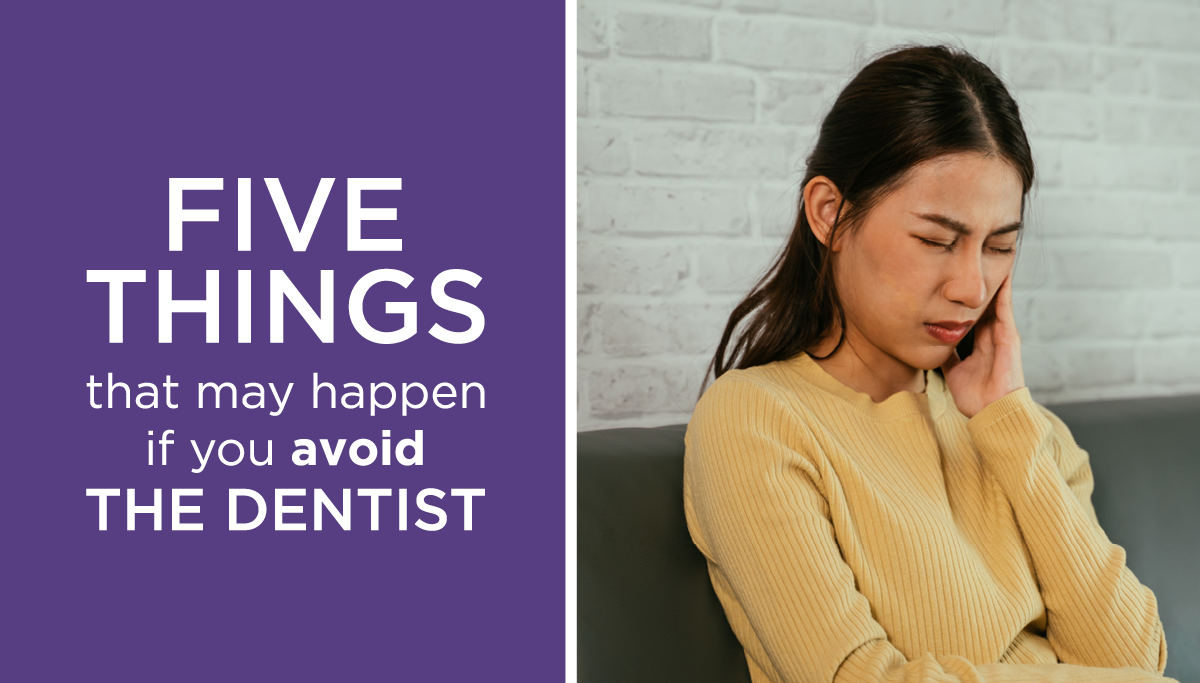5 things that may happen if you avoid the dentist
Nearly 36 percent of Americans have a fear of the dentist. For those with dental anxiety, skipping check-ups and cleanings might seem like a reasonable short-term solution. However, neglecting dental appointments can have long-term consequences on your oral health, overall health, and finances.
Here are five things that may happen if you avoid the dentist.
1. Tooth decay and cavities
Tooth decay is a common oral health problem caused when acids produced by bacteria in the mouth attack the tooth's surface.
Tooth decay doesn't typically show noticeable symptoms in its early stages. If left untreated, it can lead to more severe problems, such as a dental abscess that causes pain, fever, and facial swelling.
Regular dental check-ups can catch tooth decay and cavities early, preventing the need for invasive procedures.
2. Tooth loss
Severe tooth decay can ultimately result in tooth loss, but it's not the only cause. Gum disease, physical injury, and even diseases like diabetes can cause teeth to fall out.
Tooth loss can also have both physical and mental effects. In severe cases, the ability to eat foods like meats, fruits, and vegetables can be impacted, making it hard to maintain a healthy diet. Missing teeth can also lower self-confidence, leading to mental health concerns.
Fortunately, tooth loss is largely preventable. Dentists can diagnose and treat diseases early on or provide solutions such as dental implants or bridges to replace missing teeth and restore oral health.
3. Gum disease
Periodontal disease (gum disease), "is the most common cause of tooth loss among adults." Although loss of teeth is a severe outcome, it commonly results in bleeding gums, swollen or tender gums, or pain when chewing.
Periodontal disease is also linked to overall health issues like diabetes, heart disease, and other chronic conditions related to inflammation. Your dentist can diagnose and treat gum disease, preventing further damage to oral and overall health.
4. Missed oral cancer screening
Oral cancer, or cancer of the mouth and throat, makes up three percent of annually diagnosed cancers in the United States. Oral cancer symptoms are often visible, with sores or lumps that develop on your mouth, lips, or throat. The pain from oral cancer can also have a significant impact on day-to-day living. Many patients may have trouble chewing, swallowing, or speaking, or experience numbness and/or general pain in the mouth or ears. Regular dental check-ups include an oral cancer screening, allowing for early detection and increasing the chances of successful treatment.
5. Higher dental bills
By skipping your dental appointments, you put yourself at risk of developing more serious oral health problems that may require expensive or invasive procedures, such as root canals or extractions. Preventive care, such as regular dental check-ups and cleanings, can help avoid these costs by catching and treating oral health problems early.
Fear of the dentist can lead to serious oral health problems that can affect your overall well-being. If you're struggling with dental anxiety, talk to your dentist about your concerns. Remember, prevention is always better than treatment, and taking care of your oral health is vital to your overall health.

